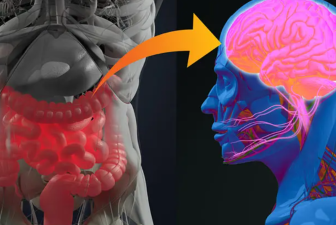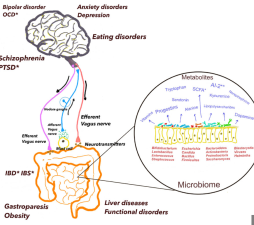Anxiety is a very common emotional state. The incidence of anxiety disorders has also been on the rise in recent years. Currently, a considerable number of patients with anxiety disorders have poor results under conventional treatment. Recent studies have shown that the diversity and types of intestinal flora are associated with anxiety and depressive behavior. The microbial community in the human intestine is large in number and complex in structure, and is called the second brain of humans. More and more studies have shown that the intestinal microbiome - trillions of microorganisms in the intestine - plays an important role in the immune system and metabolism by providing essential inflammatory mediators, nutrients and vitamins. In addition, intestinal microorganisms can affect brain function and behavior through the flora-gut-brain axis. The human genome consists of about 25,000 genes, but the microbiome in the intestine expresses about 3 million different genes. These genes help build molecules that help us digest food, prevent the proliferation of harmful microorganisms, and even help us feel emotions. Bacteria in the intestine produce about 90% of serotonin, which can regulate mood and promote health. In 2009, when researchers sampled and sequenced the gut bacteria of stressed mice, they found that stressed animals and those more prone to mental health problems had fewer species of gut microbes, or microbiomes.

Gut bacteria: the "psychologist" in the body

Supplement probiotics in moderation to adjust the intestinal flora
Regulate the spleen and stomach first to reduce the "anxiety factor"
If intestinal flora can regulate emotions, can increasing "good bacteria" make emotions more stable?
- Yogurt:
- Kimchi, natto:
- Brown rice, oats:
Good work and rest to avoid harming intestinal flora
- Keep exercising:
- Reduce high-sugar and high-fat diets:
